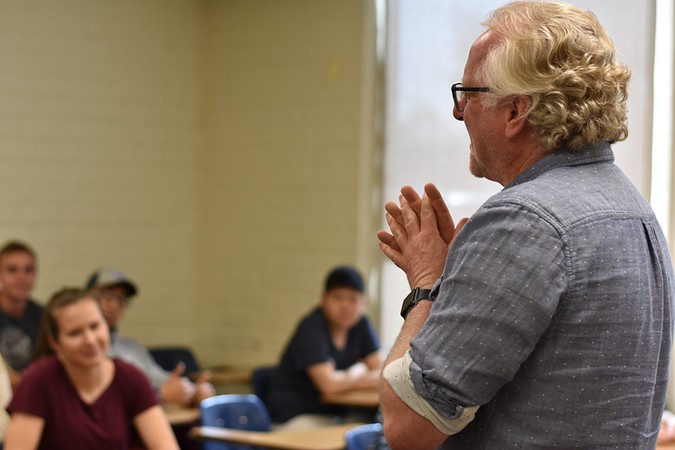Faculty. Support staff. The Office of the Provost. Vice presidents. Student Government Association. Over 1,000 people in total have had involvement in a campus-wide effort to revamp the core curriculum and form a stronger educational foundation, according to assistant professor of English and interim core coordinator Aurora Matzke.
“Students understood that maybe core was something to jump over or get rid of or finish before you could get to the serious business of your, ‘fill-in-the-blank.’ And that’s really not what a liberal arts, and in particular a Christian liberal arts, education is actually supposed to be. It’s called core education because it’s the core of what you’re doing,” Matzke said.
THE CORE CHANGES
Many of the alterations involve a reduction of units for core subjects and will affect students under the 2018-19 catalog year. For instance, the catalog has lower foreign language and physical education requirements for most students. Also, ENGL 313, a junior-level course which teaches students how to write according to their discipline, will replace ENGL 113.
Matzke believes changes like these, which also involve refining course outcomes, will allow students under the new catalog to gain a deeper understanding of the connections between their core classes and the importance of a liberal arts education.
Freshman nursing major Aliya Shibuya is considering switching to the 2018-19 catalog year, and finds it appealing because it may allow her to take her major courses sooner.
“I feel like a lot of the [core classes are] unnecessary to certain majors,” Shibuya said. “Like, I don’t get why a music major would have to take a math class or anything. It just doesn’t make sense to me.”
Discussions concerning what to include in the core began about five years ago, though the curriculum has not undergone a revamp in over 20 years, according to Matzke. Preparation and prior changes have eased the rolling out of the new catalog, however. The 2017-18 catalog decreased graduation requirements from 130 to 120 units for some majors, allowing the newest catalog to cut course requirements.
ADVISORS NAVIGATE CATALOG TRIFECTA
However, this also means academic advisors are now navigating students across three significantly different catalog years. The catalog changes have become a subject in approximately 75 percent of advising appointments, according to director of academic advising Amanda Jordan.
“For us, it just means that we have to just keep flexing our muscles and making sure that we are on top of the information,” Jordan said. “But for us, it’s not a bigger challenge. It’s just holding more information, but this is what we do all day long.”
Jordan encourages students who are considering shifting catalog years to meet with a faculty member or an advisor.
Matzke says the new catalog also provides the framework for future changes, but these remain uncertain for now. Other departments must find ways to meet the new core standards, including the Torrey Honors Institute ensuring its courses will meet classes such as the ENGL 313 requirement.
For Shibuya, changes such as the altered English course seem generally positive, allowing her to have a greater focus on what she wants to study.
“I feel like that makes more sense to have… the writing more specific to your major,” Shibuya said. “I feel like a lot of times I’m taking classes, [I’m] like, ‘I know I won’t need this later.’”








